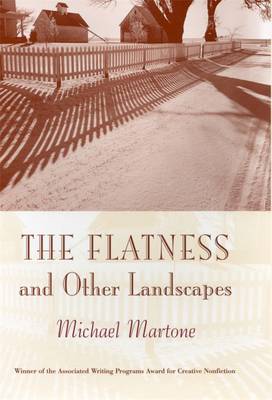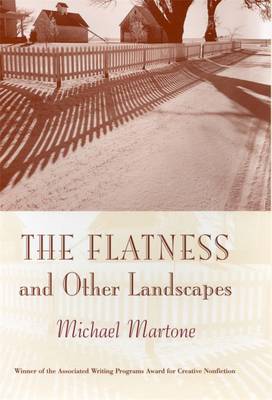
- Retrait gratuit dans votre magasin Club
- 7.000.000 titres dans notre catalogue
- Payer en toute sécurité
- Toujours un magasin près de chez vous
- Retrait gratuit dans votre magasin Club
- 7.000.0000 titres dans notre catalogue
- Payer en toute sécurité
- Toujours un magasin près de chez vous
Description
Seen from the air, the seemingly endless "flyover" spaces that form America's Midwest appear in rectangular variations of brown, green, and ochre, with what Michael Martone terms "the tended look of a train set." In these essays, the flatness of the region becomes the author's canvas for a richly textured, multidimensional exploration of its culture and history. In the tradition of the Greek myths that inspire him, Martone begins at the beginning--his beginning--as a child who "grew up" in his mother's high school English classroom. As the essays unfold, provocative accounts of his experiences lead us on a path toward discovery of the stories that build our own sense of place and color our understanding of the world.
From depicting the details of mechanized cow-milking to relating the similarities between the Greek city of Sparta and Indianapolis, Martone subtly connects different cultures, times, and stories. "Stories We Tell Ourselves" characterizes the fluid, energetic writing that transforms a mundane small town into an intertwined, vibrant world shaped by the perceptions and memories of the people who live there. What begins in one classroom at Central High effortlessly builds into a discussion, by turns playful, serious, and poignant, that touches on myriad subjects. Before our eyes, Martone unites The Odyssey, Iowa farmers, a human genome map, American Gothic, and Dan Quayle into a saga equal to any from Classical mythology, showing us that a house, a farm, a town, a country, or a civilization has energy and dimension only through the stories of its inhabitants. The Flatness and Other Landscapes proves that our lives and the landscapes that surround us are only as flat as we perceive them to be.Spécifications
Parties prenantes
- Auteur(s) :
- Editeur:
Contenu
- Nombre de pages :
- 184
- Langue:
- Anglais
- Collection :
Caractéristiques
- EAN:
- 9780820324791
- Date de parution :
- 01-09-03
- Format:
- Livre broché
- Format numérique:
- Trade paperback (VS)
- Dimensions :
- 139 mm x 219 mm
- Poids :
- 254 g

Les avis
Nous publions uniquement les avis qui respectent les conditions requises. Consultez nos conditions pour les avis.






